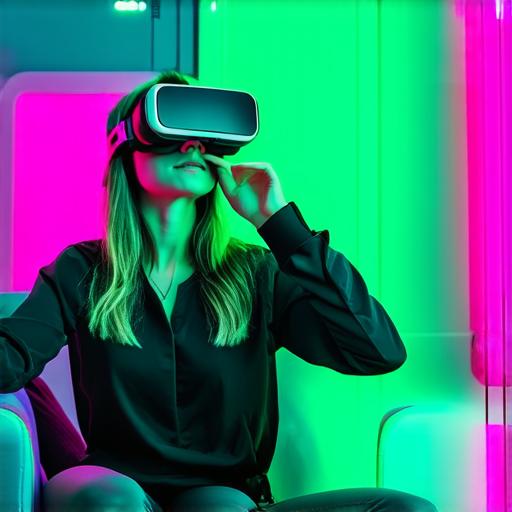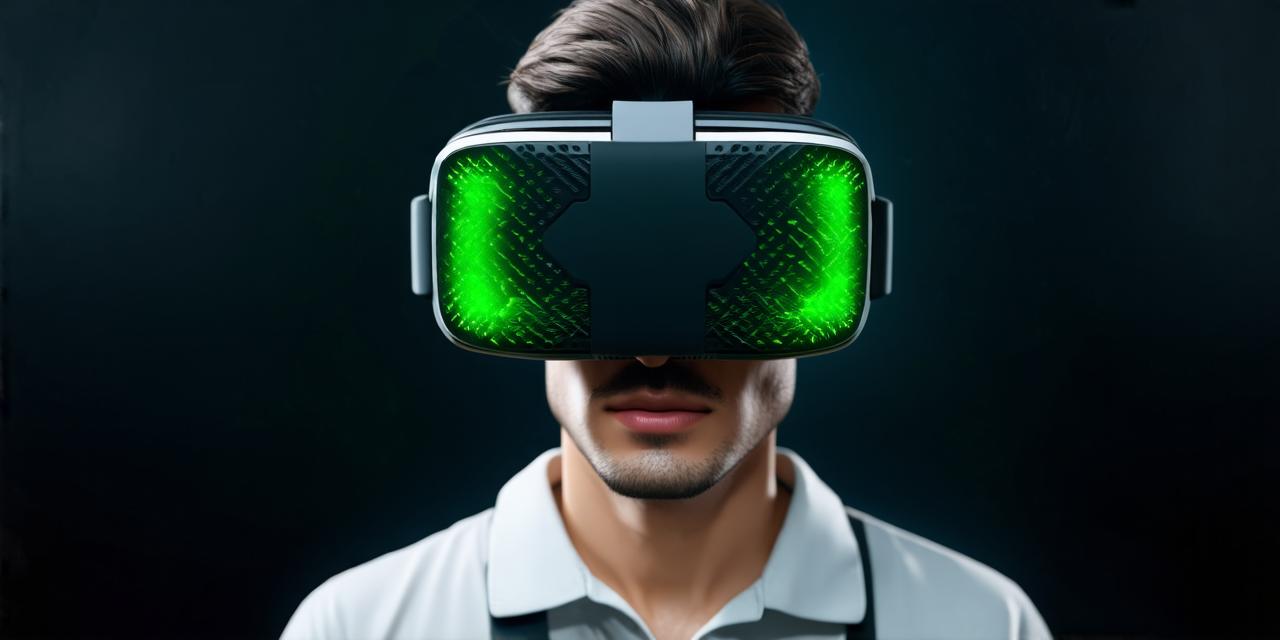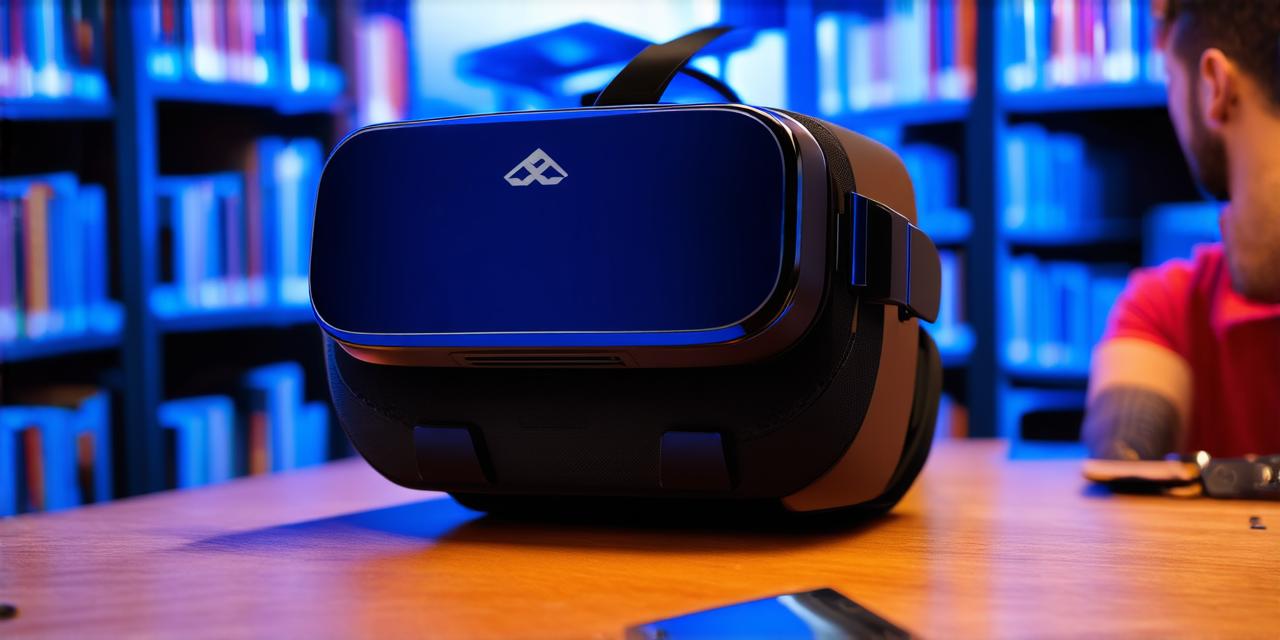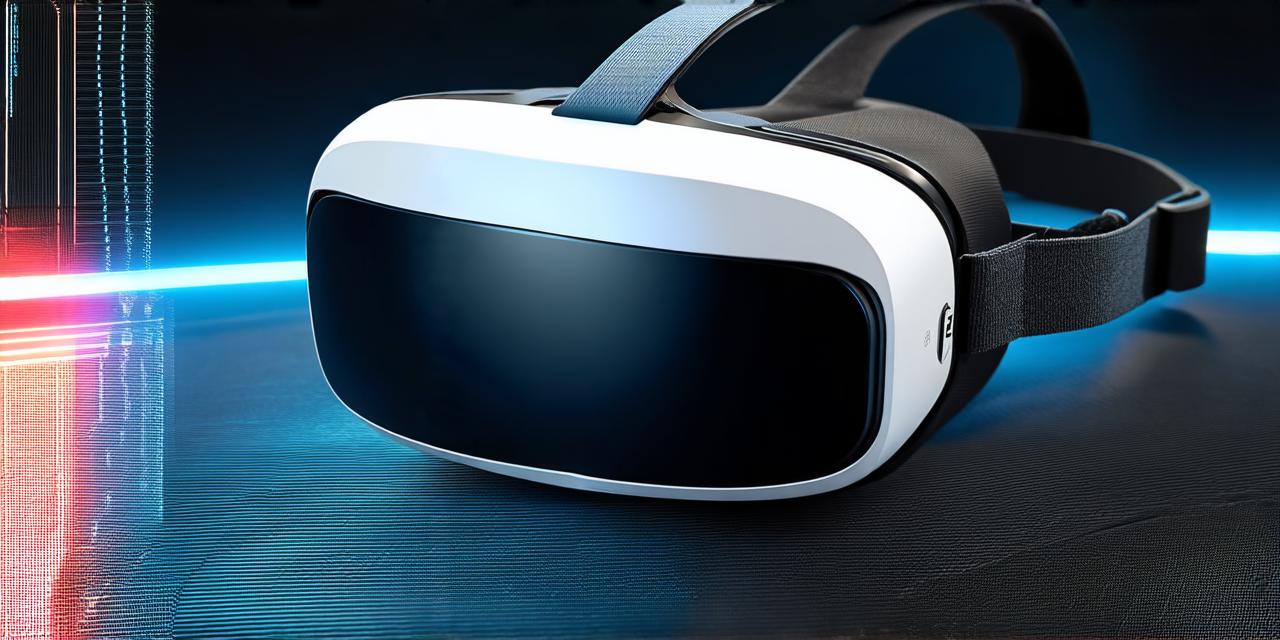Virtual reality (VR) technology is transforming various industries, including gaming, education, and entertainment. However, it has also emerged as a powerful tool for mental health care. VR therapy can provide immersive and personalized experiences that can help people overcome their fears, anxiety, and depression.
What is Virtual Reality Therapy?

Virtual reality therapy involves using a head-mounted display (HMD) or a 360-degree camera to simulate real-world environments and experiences. These simulations provide patients with a safe space to confront their fears and anxieties, while also helping them develop coping skills and strategies to manage these conditions in real life.
Applications of VR Therapy
1. Exposure Therapy
Exposure therapy is a common treatment for anxiety disorders, such as phobias, post-traumatic stress disorder (PTSD), and social anxiety. With VR therapy, patients can safely confront their fears in a controlled environment. For example, a patient with a fear of heights can gradually climb virtual mountains while receiving guidance from a therapist. Research has shown that VR exposure therapy can be as effective as traditional exposure therapy in reducing symptoms of anxiety and depression.
2. Pain Management
VR therapy can also help manage pain for patients with chronic conditions such as arthritis, fibromyalgia, and migraines. By creating virtual environments that distract from the pain, VR therapy can reduce patients’ perception of pain and improve their quality of life. A study published in the Journal of Pain found that VR therapy was effective in reducing pain intensity and unpleasantness in patients with chronic low back pain.
3. Trauma Treatment
VR therapy can also be used to treat trauma, including PTSD, complex post-traumatic stress disorder (C-PTSD), and dissociative identity disorder. By recreating the traumatic event in a safe environment, patients can process their emotions and develop coping strategies to manage their symptoms. A study published in the Journal of Trauma & Dissociation found that VR therapy was effective in reducing symptoms of PTSD and depression in veterans with combat-related trauma.
4. Addiction Treatment
VR therapy can also be used to treat addiction, including substance abuse and gambling addiction. By creating virtual environments that simulate real-life situations, patients can practice coping skills and strategies to manage their urges and triggers. A study published in the Journal of Substance Abuse found that VR therapy was effective in reducing cravings and increasing abstinence rates in patients with alcohol use disorder.
5. Mental Health Education and Training
VR therapy can also be used for mental health education and training, helping healthcare professionals develop better communication skills, empathy, and cultural competency. By simulating patient interactions, VR therapy can provide a safe space for professionals to practice their skills and receive feedback from virtual patients. A study published in the Journal of Medical Internet Research found that VR training improved the effectiveness of mental health counseling services.
How AR Developers Can Contribute to VR Therapy
AR developers can contribute to VR therapy by developing applications that enhance the immersive experience and personalization of virtual environments. Some ways AR developers can contribute include:
-
Customizing Virtual Environments
-
Developing Interactive Elements
-
Incorporating Gamification
-
Integrating Wearable Devices
-
Providing Personalized Feedback
Case Studies of VR Therapy in Mental Health Care
1. PTSD Treatment for Veterans
The Veterans Affairs (VA) has been using VR therapy to treat PTSD and other mental health conditions since the 1990s. The VA’s Exposure Therapy Program (ETP) uses virtual reality simulations to expose patients to traumatic events in a controlled environment. A study published in the Journal of Trauma & Dissociation found that VR therapy was effective in reducing symptoms of PTSD and depression in veterans with combat-related trauma.
2. Mood Disorder Treatment for Adolescents
A study published in the Journal of Adolescent Health found that VR exposure therapy was effective in reducing symptoms of depression and anxiety in adolescents with mood disorders. The study used a virtual reality simulation to expose patients to social situations that trigger their anxiety, while providing them with coping strategies to manage their emotions.
3. Pain Management for Arthritis Patients
A study published in the Journal of Medical Internet Research found that VR therapy was effective in reducing pain intensity and unpleasantness in patients with arthritis. The study used a virtual reality simulation to distract patients from their pain while they performed physical therapy exercises.
4. Addiction Treatment
for Alcohol Use Disorder
A study published in the Journal of Substance Abuse found that VR therapy was effective in reducing cravings and increasing abstinence rates in patients with alcohol use disorder. The study used a virtual reality simulation to simulate real-life situations where patients might be tempted to drink, while providing them with coping strategies to manage their urges.
5. Mental Health Education for Medical Students
A study published in the Journal of Medical Internet Research found that VR training improved the effectiveness of mental health counseling services. The study used a virtual reality simulation to train medical students on effective communication and empathy skills, while providing feedback on their performance.
Conclusion
Virtual reality therapy has emerged as a powerful tool for mental health care, providing immersive and personalized experiences that can help people overcome their fears, anxiety, and depression. AR developers can contribute to this growing field by developing applications that enhance the immersive experience and personalization of virtual environments. By incorporating gamification elements, wearable devices, and personalized feedback, AR developers can create VR therapy applications that are engaging, motivating, and effective in treating a range of mental health conditions.
FAQs
VR therapy has been shown to be as effective as traditional therapy in treating some mental health conditions, such as PTSD and depression. However, the effectiveness of VR therapy may depend on the specific application and patient needs. VR therapy can replace human therapists? While VR therapy can be an effective supplement to human therapists, it is not a substitute for human interaction and support. Human therapists provide emotional support, guidance, and accountability that cannot be replicated by a virtual environment.
What types of mental health conditions can VR therapy treat? VR therapy has been shown to be effective in treating a range of mental health conditions, including PTSD, depression, anxiety, mood disorders, addiction, and social phobia. However, the specific application of VR therapy may depend on the patient’s needs and preferences.




